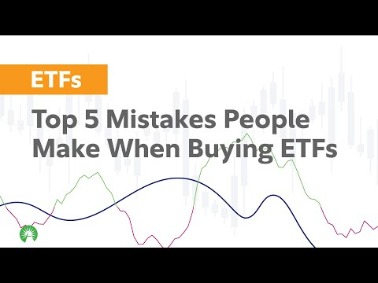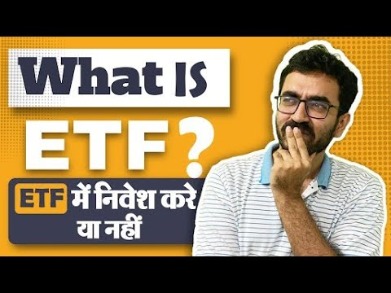Etfs To Invest In
Table of Contents Heading
- Active Management And The Preferred Stock Etf Space
- Both Are Less Risky Than Investing In Individual Stocks & Bonds
- Etf Strategist Channel
- Etfs Vs Mutual Funds
- More Economic And Market Upside To Come
- Open A Brokerage Account
Add in a scenario like 2021, where the Federal Reserve is expected to stay put, and it’s very likely that short-term bonds will barely move – again. Municipal bonds are a potential opportunity in 2021, but they’re hardly a sure thing. “EM local-currency real yields are above long-term averages and remain attractive, particularly when compared with U.S. real yields, which have recently turned quite negative.” But what makes XSOE really stand out is its exclusion of companies that have 20% or more government ownership. China makes up more than a third of the fund’s weight, including top-two holdings Alibaba Group (BABA, 7.9%) and Tencent Holdings (TCEHY, 6.5%). But it also has large positions in South Korean (15.3%), Taiwan (14.0%) and India (12.5%), as well as smaller holdings across other Asian nations, including Malaysia, Indonesia and the Philippines.
Represents the value of all of the securities and other assets held in an ETF or a mutual fund, minus its liabilities, divided by the number of outstanding shares. Comparing these and other characteristics makes good investing sense. But unfortunately it’s not as easy as categorically comparing “all ETFs” to “all mutual funds.” Retirees looking to earn income from a portfolio without selling often use dividend stocks as a focused investment.
Active Management And The Preferred Stock Etf Space
Although the ETF invests in more speculative countries such as Indonesia, Brazil and Saudi Arabia, more than half of the ETF’s assets are invested in China and Taiwan. The expense ratio on this fund is just 0.11%, which is very thrifty for a fund of this nature.
In fact, ETFs have been linked to several flash-crashes since the 2008 financial crisis. Investors should consider carefully information contained in the prospectus or, if available, the summary prospectus, including investment objectives, risks, charges, and expenses. ETFs at Charles Schwab & Co., Inc. (“Schwab”) can be traded without a commission on buy and sell transactions made online in a Schwab account. Schwab does not receive payment to promote any particular ETF to its customers. Schwab’s affiliate Charles Schwab Investment Management, Inc. (“CSIM”) serves as investment advisor to the Schwab ETFs™, which compensate CSIM out of the applicable operating expense ratios. The amount of the fees is disclosed in the prospectus of each ETF.
Both Are Less Risky Than Investing In Individual Stocks & Bonds
For example, some investors want to make sure they max out their IRA contributions every year. But they prefer to spread the contributions over the course of the year, and they don’t want to forget a transaction by accident. A market order will typically be completed almost immediately at a price that’s close to the current market price. Regardless of what time of day you place your order, you’ll get the same price as everyone else who bought and sold that day. You can buy an ETF for the price of 1 share—commonly referred to as the ETF’s market price.

It is a similar type of investment to holding several short positions or using a combination of advanced investment strategies to profit from falling prices. Many inverse ETFs use daily futures as their underlying benchmark.
Etf Strategist Channel
ETFs can be one of the easier and safer ways for investors to get into the stock market, because they offer immediate diversification, regardless of how much you invest. To get started, you’ll want to open a brokerage account, one that’s especially focused on the needs of ETF investors. Individual stocks can provide income, but dividend ETFs are an easy way to gain exposure to a basket of dividend-paying stocks.

When evaluating offers, please review the financial institution’s Terms and Conditions. If you find discrepancies with your credit score or information from your credit report, please contact TransUnion® directly. This is compared to the S&P 500, which covers approximately 80% of available market cap. expense ratio, which is the amount you’ll pay in fees every year to own the fund — the lower the expense ratio, the less it will eat into your returns. This can be done 100% online, and many brokerages have no account minimums, transaction fees or inactivity fees.
Etfs Vs Mutual Funds
Its articles, interactive tools and other content are provided to you for free, as self-help tools and for informational purposes only. NerdWallet does not and cannot guarantee the accuracy or applicability of any information in regard to your individual circumstances. Examples are hypothetical, and we encourage you to seek personalized advice from qualified professionals regarding specific investment issues.
- Vanguard ETF Shares are not redeemable directly with the issuing fund other than in very large aggregations worth millions of dollars.
- We are compensated in exchange for placement of sponsored products and, services, or by you clicking on certain links posted on our site.
- The shareholders indirectly own the assets of the fund, and they will typically get annual reports.
- Vanguard agrees, noting that “parts of the U.S. equity market, including value-oriented sectors, are projected to have somewhat higher returns after an extended period of significant underperformance.”
- We seek consistent performance and increased diversification through our strategic investing approach.
Because ETFs almost always track an index, their fees are much lower than actively managed funds. You’ll still want to keep an eye out for their expense ratios, though. These can vary across providers, and you’ll want to choose the ETFs with the lowest possible operating fees because ETFs tracking a particular index will have nearly identical performance, regardless of their cost. Make sure your brokerage of choice will allow you to trade your selected ETFs fee free as well.
From the market high in February through the March nadir, SH gained a little more than 42%. Even investors who only rode SH part of the way down secured some much-needed protection. At its absolute worst in 2020, ICSH lost about 3.5% of its value – a blip compared to what most stocks did. It recovered fast, too, and has even managed to eke out a 1%-plus gain through mid-December. “The valuation at the upper-end of the credit spectrum heavily favors tax-exempt municipal bonds over corporates,” says BCA Research. “Investors that can take advantage of the tax exemption should prefer munis over investment-grade corporates.”
To bring the ETF’s share price back to its NAV, an AP will buy shares of the ETF on the open market and sell them back to the ETF in return for shares of the underlying stock portfolio. In this example, the AP is able to buy ownership of $100 worth of stock in exchange for ETF shares it bought for $99.
More Economic And Market Upside To Come
If you’re just starting out, look for brokerages that offer affordable minimums or no minimum. Because you can’t just go to the store to purchase a basket of ETFs, the first thing you need to do is open a brokerage account. Before deciding where to open your account, though, it’s important to consider your goals. Invest in progress and a more sustainable future – without sacrificing portfolio returns.

A brokerage firm is a middleman that facilitates the buying and selling of securities. Opening an account at a brokerage firm is not so different than opening a bank account. The assets may represent a variety of different industries or only a single sector.
Investment returns will fluctuate and are subject to market volatility, so that an investor’s shares, when redeemed or sold, may be worth more or less than their original cost. Unlike mutual funds, shares of ETFs are not individually redeemable directly with the ETF. Shares are bought and sold at market price, which may be higher or lower than the net asset value . ETFs are funds that hold a group of assets such as stocks, bonds or others. Their shares trade on an exchange like a stock, and they allow investors to acquire an interest in all the fund’s holdings by buying just one share. The minimum cost to get into the market is just the cost of one share, often in the range of $20 – $200.
Open A Brokerage Account
Unlike many other funds that focus heavily on international marijuana firms , MSOS is the first pure-play U.S. cannabis ETF. While healthcare was certainly in the spotlight given that our economic woes were health-related, much of the sector was actually harmed by the outbreak, not helped. In fact, the sector still lags the broader market through this late hour in 2020. The phrase “you can have your cake and eat it too” certainly wasn’t coined with the healthcare sector in mind, but it’s certainly applicable. Healthcare funds effectively provide the best of both worlds, able to deliver growth during economic expansion, but also able to act defensively when the economy isn’t running full steam ahead.
Investors often turn to gold in times of uncertainty, and one way to play it is by owning gold miners instead of the shiny stuff itself. Owning the miners gives you more upside if gold prices rise , and that’s what this VanEck fund offers. It’s among the largest gold miner ETFs out there, and charges $52 annually for every $10,000 invested in the fund. Its five-year performance through September 2020 was an average of 21 percent annually.
The best proxy for comparison of past performance is the Fidelity Total Market Index Fund . This fund offers near-identical performance to the Dow Jones US Total Stock Market index and over the last ten years moderately outperformed the large-blend category. Eric Rosenberg is an expert in investing, mortgage and home loans, and banking.
While this is an advantage they share with other index funds, their tax efficiency compared to mutual funds is further enhanced because ETFs do not have to sell securities to meet investor redemptions. Once you’ve determined your investment goals, ETFs can be used to gain exposure to virtually any market in the world or any industry sector. You can invest your assets in a conventional fashion using stock index and bond ETFs, and adjust the allocation in accordance with changes in your risk tolerance and goals.
For example, if you compare a stock ETF with a bond mutual fund, the ETF-vs.-mutual-fund comparison isn’t as important. What matters is that each invests in something completely different and, therefore, behaves differently. You can just as easily get help deciding which mutual funds could help you meet your goals. You may be surprised by just how similar ETFs and mutual funds really are. Ticker symbol QQQ gives you an ETF that tracks the NASDAQ 100 Index.

